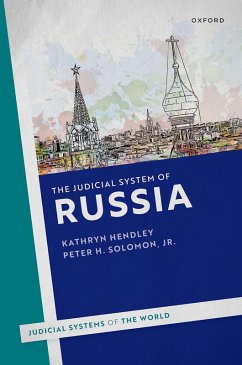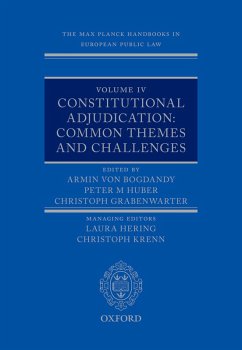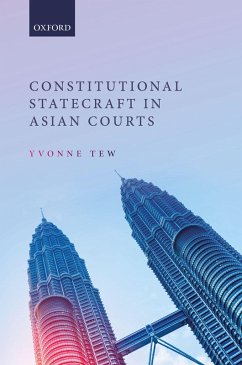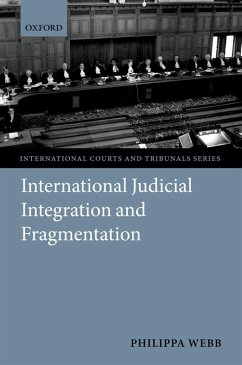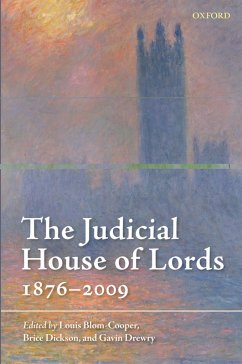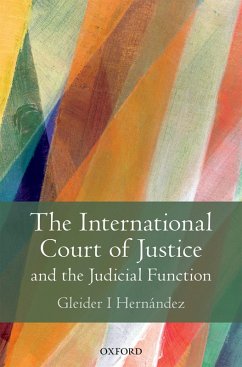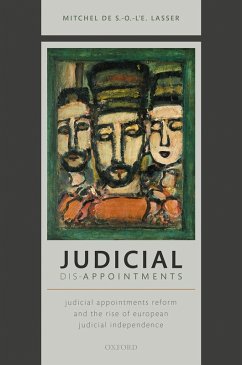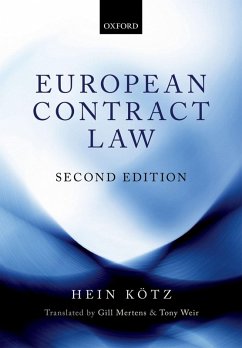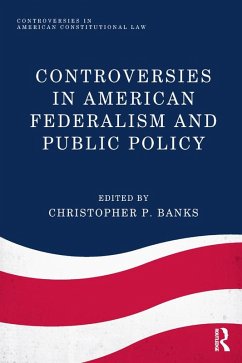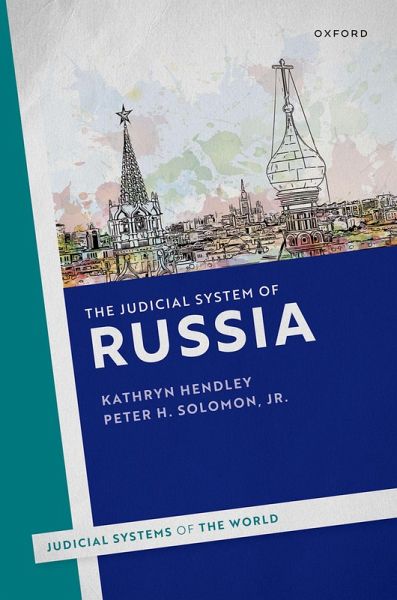
The Judicial System of Russia (eBook, ePUB)
Versandkostenfrei!
Sofort per Download lieferbar
17,95 €
inkl. MwSt.
Weitere Ausgaben:

PAYBACK Punkte
9 °P sammeln!
The Judicial System of Russia paints a portrait of the courts of the Russian Federation under Putin, how they work in practice, and what shapes the behaviour of its judges. It stresses the dual nature of a judicial system, where ordinary cases are for the most part handled fairly, but where cases of interest to powerful persons are subject to influence--a common situation in authoritarian states. In so doing, the authors trace the origins of some contemporary practices to the Soviet past, but also identify novelties. They pay close attention to the struggles of reformers to make the courts fai...
The Judicial System of Russia paints a portrait of the courts of the Russian Federation under Putin, how they work in practice, and what shapes the behaviour of its judges. It stresses the dual nature of a judicial system, where ordinary cases are for the most part handled fairly, but where cases of interest to powerful persons are subject to influence--a common situation in authoritarian states. In so doing, the authors trace the origins of some contemporary practices to the Soviet past, but also identify novelties. They pay close attention to the struggles of reformers to make the courts fairer and more efficient, along with the measures taken to ensure that judges conform to the expectations of their political masters. This means dealing with the evolution of judicial governance, including the selection, promotion, and disciplining of judges. In studying the actual operation of the courts, the authors take a socio-legal approach, emphasizing how different players (petitioners, respondents, lawyers, prosecutors, accused, judges) behave and why. This means dealing with the full gamut of courts from justices of the peace through the Supreme and Constitutional Courts and analysing their conduct in ordinary civil disputes, criminal cases, business disputes, administrative justice (claims against state officials), and constitutional matters. The authors also examine the relation of the public to the courts, including its readiness to litigate disputes despite generally negative views of the courts. This analysis of the administration of justice in Russia covers both the Constitutional Amendments of 2020 and developments relating to the first months of the 2022 War in Ukraine. It is a must read for academics, practitioners, and all those with an interest in comparative courts and Russia's judicial system.
Dieser Download kann aus rechtlichen Gründen nur mit Rechnungsadresse in A, B, BG, CY, CZ, D, DK, EW, E, FIN, F, GR, HR, H, IRL, I, LT, L, LR, M, NL, PL, P, R, S, SLO, SK ausgeliefert werden.




